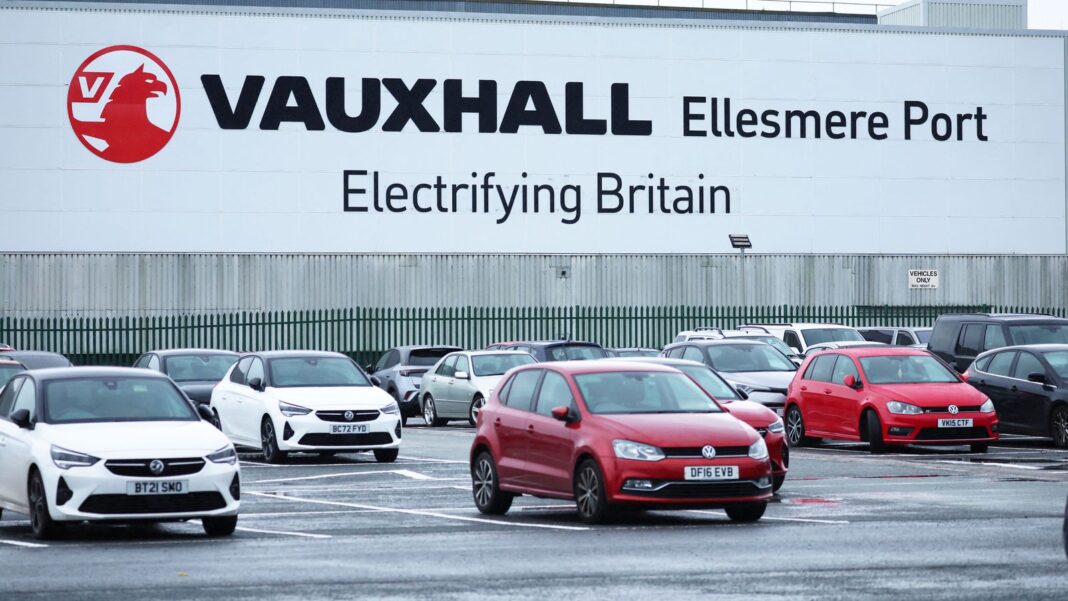The company that owns Britain’s Vauxhall car plants met the UK government’s electric vehicle (EV) sales mandate last year despite publicly criticising the target and announcing the closure of its Luton factory.
Stellantis, which also owns the Peugeot, Citroen and Fiat brands, as well as a number of others, was the UK’s best-selling electric van manufacturer in 2024, it announced on Thursday.
Despite this, the company said in November it would close its Luton van plant in April, putting more than 1,100 jobs at risk.
Money blog: Major mobile company increasing bills next month
Under the government’s zero-emission vehicle mandate (ZEV), car makers must ensure 22% of their annual sales are electric vehicles.
Financial penalties are levied against manufacturers if zero-emission cars make up less than 22% of all new sales and if electric vans make up less than 10%. This will rise to 80% of all electric car sales by 2030 and 100% by 2035.
Please use Chrome browser for a more accessible video player

2:51
Jaguar reveals new electric car
Stellantis surpassed this 2024 goal, however, but did not say what percentage of sales were electric cars and vans.
It did say it sold 39,492 electric cars in 2024 – a 59% increase on 2023 – and 7,821 electric vans.
‘ZEV mandate out of step with demand’
The target was hit despite longstanding criticism of the mandate, reiterated on Thursday.
Stellantis UK’s group managing director Eurig Druce said: “The steep trajectories of the ZEV mandate are out of step from current demand.”
“Put simply, if the UK is to achieve its transport emission ambitions, and for EVs to represent 80% of new cars sold in 2030, then consumers are going to need more encouragement from government to do so.”
Read more: UK’s EV market doing better than you might think
In response to industry complaint and job losses, as Ford planned to cut 800 UK roles as part of a European cull, the government announced a consultation on the ZEV goal.
Shortly after the consultation was announced, industry figures for November showed the target was reached. Data from the Society of Motor Manufacturers and Traders (SMMT) showed battery electric vehicles (BEVs) accounted for 25% of new car registrations in November, well above the government target.
But for 2024 as a whole, electric car sales were just shy of the mandate at 19.6%, according to the SMMT.
The lobby group said complying with the combustion engine phase-out rules would cost the industry £4bn in discounts (needed to make EVs appealing to buyers) and £1.8bn in fines for missing the mandate in 2024 alone.
‘UK’s targets are working’
Opposition to the policy is not uniform.
Campaign group New Automotive responded to the Stellantis figures by saying: “The lessons for ministers are clear: the UK’s targets are working, consumer demand is there, manufacturers are delivering, and the UK is poised to benefit from greener, cheaper transport.”
The Department for Transport said: “The UK is now the largest EV market in Europe and, thanks to the flexibilities of the ZEV Mandate, we are confident that the whole industry will meet targets and that no car manufacturer will need to pay fines.”
“We’re investing over £2.3bn to make the transition to zero-emissions vehicles a success, unlocking a multibillion-pound industry and creating high-quality jobs that will drive growth for decades to come.”







